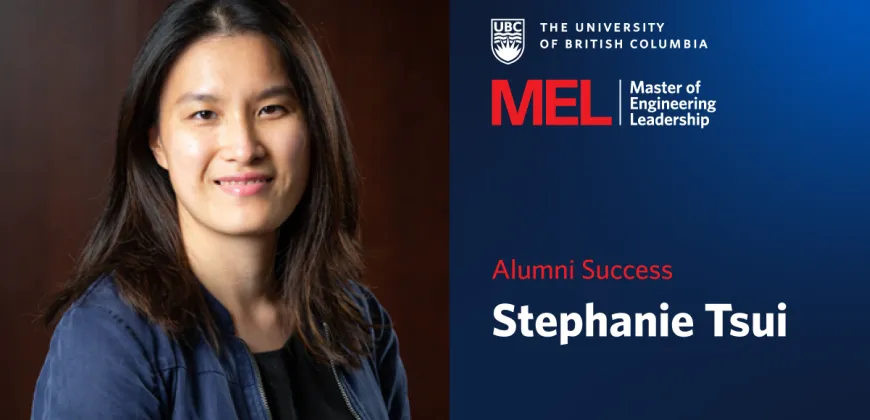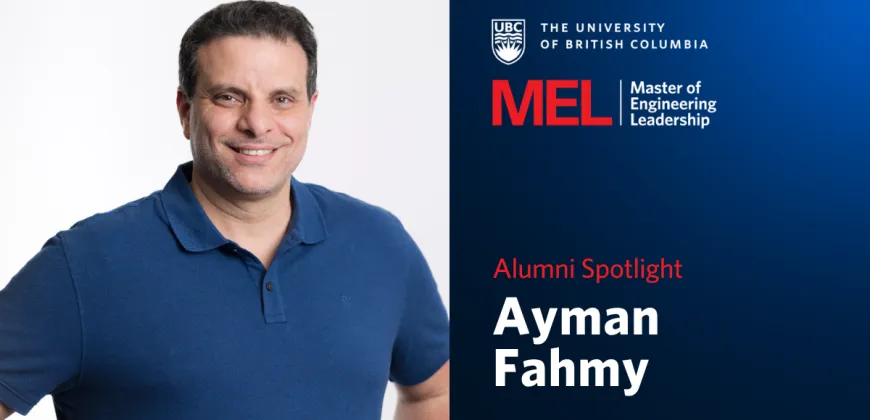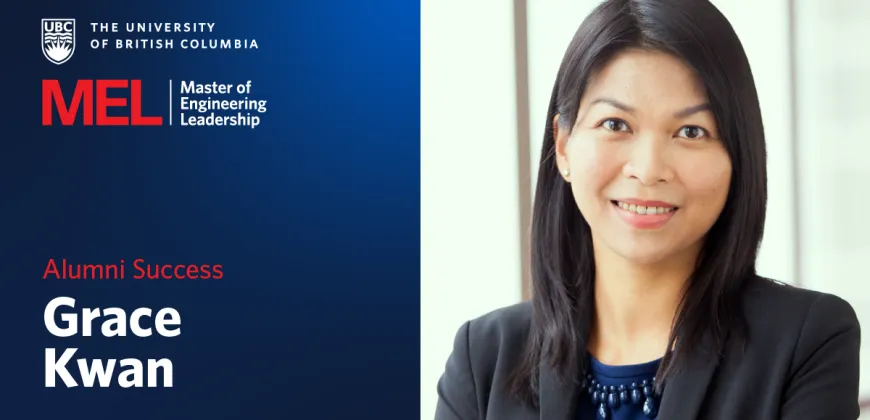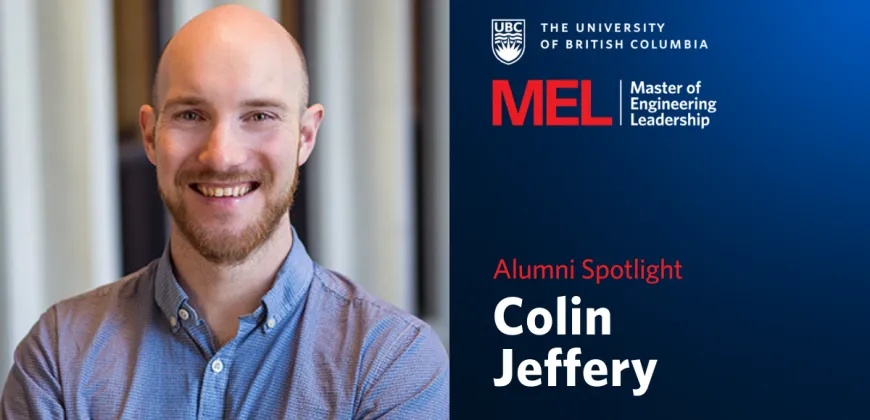Alumni Spotlight: Stephanie Tsui
Motivated by a desire to gain both technical and business skills, Stephanie Tsui says she’s benefited from the MEL in Urban Systems’ interdisciplinary focus and emphasis on sustainability.

After graduating from the University of Waterloo with a degree in environmental studies, Stephanie Tsui worked for over three years at the City of Toronto, including as a planner focusing on cycling infrastructure. Her job required her to coordinate with internal and external stakeholders, such as the departments of engineering construction and asset management and provincial agencies (Metrolinx, Toronto and Region Conservation Authority) to come to consensus on planning priorities.
Ready for a career move, Stephanie recognized that a master’s degree offered a potential path to new job opportunities. As she researched her options, she realized she wanted a degree that focused on professional development rather than one that dived deep into academic or technical topics. The Master of Engineering Leadership (MEL) in Urban Systems met her needs.
“The mix of business/leadership courses and engineering/planning courses appealed to me,” she says.
“I also wanted broaden my networking circle and learn from our leaders to better understand the climate for sustainable transportation planning.”
Stephanie chose to do the degree part time, continuing to work at the City of Toronto for the first year of the program when public health regulations relating to COVID-19 meant classes were offered online. After the regulations were lifted and students returned to in-person learning, Stephanie moved to Vancouver to complete the second year of the degree.
A multidisciplinary curriculum
The MEL in Urban Systems curriculum covers the complete life cycle of urban infrastructure, including planning, engineering, infrastructure asset management, and project delivery and economics. The Urban Systems Engineering course taught by Konrad Siu was a highlight for introducing her to value engineering approaches for evaluating potential solutions against a range of criteria and to meet the needs of diverse stakeholders.
The course also included a capstone project where students were asked to propose practical ideas to in support of environmental, social and economic goals at Blatchford, a 546-acre development in Edmonton, Alberta, that was the former home of a downtown airport. The entire class flew to Edmonton to tour the site and meet with planning and development leaders to learn first hand about the challenges and opportunities facing the development project.
“Each student group proposed several ideas for the site leaders to consider in their planning process,” says Stephanie. “My group looked at electric vehicle infrastructure as well as strategies to foster a vibrant community presence at the street level, which can be challenging during winter months in the city.”
About 40 per cent of the MEL in Urban Systems curriculum consists of business and leadership classes offered through UBC Sauder’s Robert H. Lee Graduate School.
“These courses help you deepen your skills in planning, negotiation, interpersonal communication and leadership,” says Stephanie.
“Although many of the concepts and ideas were a refresh for me, I enjoyed the process of reflection and I gained new tools for building connections.”
Positioned for success in her industry
In the fall of 2022 while completing the last semester of her degree, Stephanie began working as a planner for TransLink in the Bus Priority Program. The work builds on her professional experience from the City of Toronto and enables her to incorporate some of the new knowledge and skills she acquired during the MEL.
Her role requires her to work with municipal partners across Metro Vancouver to identify bus priority infrastructure to improve bus speed and reliability. This can include signal upgrades or physical roadway change, such as dedicated bus lanes to help achieve on-time performance and improve customers’ transit experience.
Stephanie says that the MEL in Urban Systems has given her a solid foundation for positioning herself in her field. “Sustainability and climate change – two areas of focus in the MEL – are an important part of this job. The business and leadership skills have supported my abilities in planning and delivering projects, as well as negotiation with multiple stakeholders who may have different interests or priorities.”
One of the major benefits of the program, she says, are the classroom discussions and group work that bring together students and professors with a range of professional backgrounds.
“When I was looking for a master’s program, I liked the idea of a program where planners and engineers learn together,” she says.
“There’s a cliché out there that planners are the dreamers and that engineers are the practitioners. But at the end of the day, we have to work together. We need both to achieve successful project outcomes. This degree was a way for me to learn some engineering fundamentals and strengthen my ability to work collaboratively with professionals from different disciplines.”
–
Take the steps to join the next cohort of engineering leaders. If you haven’t already, assess your eligibility and sign up for the upcoming information session to learn how to submit a strong application. Learn more about this innovative master’s program:



